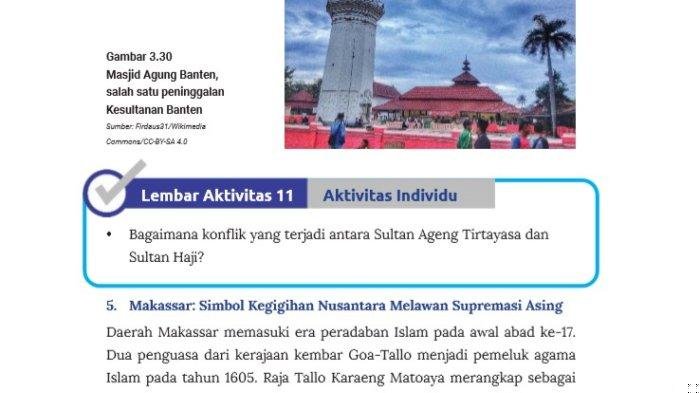Exploring Ya Hannan Ya Mannan Ya Fattah Ya Razzaq Ya Ghoniyyu Ya Mughni Artinya

Understanding “ya hannan ya mannan ya fattah ya razzaq ya ghoniyyu ya mughni artinya” opens a door to profound spiritual significance. Each name reflects attributes of divine mercy, generosity, and sustenance. These powerful names resonate deeply with people seeking comfort and guidance in their lives.
As we delve into the meanings behind these names, we find solace in their implications of hope and abundance. This exploration invites us to connect with the essence of these attributes and embrace their influence in our daily existence. Join us on this enlightening journey to uncover the depth of these sacred names.
Understanding Ya Hannan Ya Mannan Ya Fattah Ya Razzaq Ya Ghoniyyu Ya Mughni Artinya
The phrases “Ya Hannan,” “Ya Mannan,” “Ya Fattah,” “Ya Razzaq,” “Ya Ghoniyyu,” and “Ya Mughni” are beautiful Arabic words, each embodying profound meanings that resonate with faith and spirituality. These phrases are often used in Islamic supplications and prayers, allowing believers to call upon God’s attributes. In this blog, we will delve deep into the meanings of these names, explore their significance in daily life, and provide context on their usage in prayers. By the end, you’ll gain a richer understanding of these powerful names and how they enhance spiritual practice.
Breaking Down Each Phrase
Let’s look at each term individually to truly appreciate their meanings and the attributes of God they represent.
Ya Hannan
“Ya Hannan” translates to “O Most Affectionate” or “O Most Tender.” This name signifies God’s immense love and compassion toward His creation. Believers often call upon Ya Hannan during times of distress, seeking solace and warmth.
**Significance in Daily Life:**
– When feeling lost or abandoned, invoking Ya Hannan reminds us that we are loved unconditionally.
– It serves as a reminder to treat others with kindness, emulating the compassion we receive from God.
Ya Mannan
“Ya Mannan” means “O Bestower” or “O Giver of Gifts.” This name highlights God’s generosity and the countless blessings He bestows upon humanity without expectation of return.
**Significance in Daily Life:**
– Reflecting on Ya Mannan encourages gratitude for the blessings we often take for granted.
– It inspires believers to share their blessings with others, reinforcing the cycle of generosity.
Ya Fattah
“Ya Fattah” translates to “O Opener.” This name represents God’s ability to open doors and present opportunities for His creation. Whether it is guidance, understanding, or success in endeavors, Ya Fattah signifies divine assistance.
**Significance in Daily Life:**
– Calling upon Ya Fattah can provide hope during challenging situations when one may feel stuck.
– It encourages believers to remain persistent and open to the possibilities in life.
Ya Razzaq
“Ya Razzaq” means “O Provider” or “O Sustainer.” This name emphasizes God’s role in ensuring that all creatures are provided for, both spiritually and materially.
**Significance in Daily Life:**
– Invoking Ya Razzaq reminds believers that their needs will be met and encourages trust in God’s provisions.
– It inspires a sense of community, encouraging believers to work together to support each other.
Ya Ghoniyyu
“Ya Ghoniyyu” translates to “O Self-Sufficient” or “O Wealthy.” This name emphasizes God’s completeness and His independence from anything else.
**Significance in Daily Life:**
– Understanding Ya Ghoniyyu alleviates anxieties about wealth and material possessions, reminding believers that true richness comes from faith.
– It encourages believers to seek spiritual wealth over material gain.
Ya Mughni
“Ya Mughni” means “O Enricher” or “O Sufficient.” This name signifies God’s ability to fulfill all needs, whether spiritual, emotional, or material.
**Significance in Daily Life:**
– When times are tough, invoking Ya Mughni reassures believers that they will be enriched in ways they may not expect.
– This encourages a mindset of abundance and appreciation for all forms of fulfillment.
The Importance of Names in Islam
In Islam, names hold significant spiritual meaning. The names of God (Asma’ul Husna) not only help believers in their prayers but also reflect the nature of God Himself. Each name encompasses unique characteristics and attributes, providing insight into the divine nature.
**Why Are These Names Important?**
– **Facilitate Connection:** These names create a bridge between believers and God, allowing for a personal connection during prayers.
– **Encourage Reflection:** Reflecting on these names encourages believers to embody these attributes in their own lives.
– **Guide Spiritual Practice:** Using these names in prayers helps focus intentions and express specific needs to God.
Cultivating a Spiritual Practice Using These Names
Using “Ya Hannan,” “Ya Mannan,” “Ya Fattah,” “Ya Razzaq,” “Ya Ghoniyyu,” and “Ya Mughni” in daily prayers can greatly deepen your spiritual practice. Here are some practical ways to incorporate these names into your routine.
Morning Affirmations
Start each day by reciting these names as a form of affirmation. This practice sets a positive tone and aligns your mindset with gratitude and hope.
In Prayer
Incorporate these names into your regular prayers. When making supplications, use them to ask for love, provision, guidance, and enrichment in your life.
Journaling
Consider keeping a spiritual journal where you write down reflections on how these names manifest in your life. Document moments where you feel God’s affection, generosity, or guidance.
Meditation and Reflection
Spend time meditating on each name. Focus on its meaning and how it relates to your life experiences. This reflection can lead to deeper insights and personal growth.
Prayers and Supplications Using These Names
Believers often recite these names in supplications to seek help and guidance. Here are some examples of how you might frame your prayers:
Invocation of Compassion
“Ya Hannan, please envelop me in Your love during this difficult time…”
Gratitude for Blessings
“Ya Mannan, thank You for the countless blessings that I often overlook…”
Seeking Guidance
“Ya Fattah, open the doors of opportunity for me…”
Trust in Provision
“Ya Razzaq, I trust that You will provide for all my needs…”
Finding Fulfillment
“Ya Ghoniyyu, I seek richness not in material but in faith and spirit…”
Abundance in Life
“Ya Mughni, enrich my life with Your wisdom and guidance…”
How These Names Impact Community and Relationships
Incorporating the names of God into community and relationships can lead to a more compassionate and supportive environment. Here’s how these names can foster connection:
Encouraging Kindness
By recognizing “Ya Hannan,” individuals are motivated to be more affectionate and kind to others, promoting loving relationships.
Sharing Generosity
Understanding “Ya Mannan” encourages sharing and supporting those in need within the community, fostering a sense of togetherness.
Mutual Support in Growth
Calling upon “Ya Fattah” acknowledges the collective journey of growth, prompting individuals to uplift each other in their endeavors.
Building Trust
Recalling “Ya Razzaq” can enhance trust among community members, knowing that there is enough for everyone, encouraging collaboration and support.
Fostering Spiritual Wealth
Recognizing “Ya Ghoniyyu” helps community members prioritize spiritual wealth over materialism, promoting deeper connections based on shared values.
Creating a Culture of Abundance
Embracing “Ya Mughni” builds a culture of abundance, where individuals feel secure in their relationships, and are more willing to give and receive help.
Conclusion of the Exploration
The names “Ya Hannan,” “Ya Mannan,” “Ya Fattah,” “Ya Razzaq,” “Ya Ghoniyyu,” and “Ya Mughni” encompass beautiful attributes of God that resonate deeply with believers. By understanding and incorporating these names into daily practices, prayers, and community interactions, individuals can cultivate a more meaningful and compassionate spiritual life. Reflecting on each name not only enhances personal faith but also fosters a sense of unity and support within the community. May we all strive to embody these qualities in our lives as we connect with the divine and each other.
Ya Hannan Ya Mannan Ya Fattah Ya Rozak Ya Ghoni Ya Mughni 100x
Frequently Asked Questions
“`html
What do the names ‘Hannan’ and ‘Mannan’ signify in Arabic?
‘Hannan’ translates to ‘the Most Kind’ or ‘the Most Affectionate’, reflecting a sense of deep compassion. ‘Mannan’ means ‘the Bestower’ or ‘the Giver of Blessings’, indicating someone who generously bestows favors upon others. Together, they represent attributes of mercy and generosity.
How do the names ‘Fattah’ and ‘Razzaq’ relate to divine qualities?
‘Fattah’ means ‘the Opener’ or ‘the Solver’, symbolizing the capacity to provide solutions and open avenues for success. ‘Razzaq’, on the other hand, represents ‘the Provider’ or ‘the Sustainer’, emphasizing the act of providing sustenance and livelihood to all creatures.
What is the significance of the names ‘Ghoniyyu’ and ‘Mughni’ in Islamic teachings?
‘Ghoniyyu’ translates to ‘the Self-Sufficient’, highlighting that Allah is completely independent and does not require anything from creation. ‘Mughni’ means ‘the Enricher’, suggesting that Allah enriches His followers spiritually and materially. Together, these names portray the completeness and generosity of God.
How can one incorporate the meanings of these names into daily life?
Individuals can embody the qualities of compassion, generosity, and self-sufficiency in their everyday actions. Practicing kindness and helping others, seeking solutions to problems, and being thankful for one’s blessings can reflect the attributes associated with these names.
Why are these names important in Islamic tradition?
These names come from the 99 names of Allah, known as Asma’ul Husna. Each name reflects a distinct attribute of God, and they serve as a means for believers to understand and connect with the divine essence. Reciting these names often promotes spiritual growth and strengthens faith.
“`
Final Thoughts
Understanding the phrases “ya hannan ya mannan ya fattah ya razzaq ya ghoniyyu ya mughni artinya” provides insight into the profound meanings behind these Arabic terms. Each word carries significance, reflecting attributes of mercy, provision, wealth, and sufficiency.
These names represent qualities that many seek in their spiritual journey, emphasizing reliance on a higher power. Embracing their meanings can inspire individuals to cultivate faith and gratitude in their lives. In essence, “ya hannan ya mannan ya fattah ya razzaq ya ghoniyyu ya mughni artinya” encapsulates a heartfelt plea for support and abundance.







